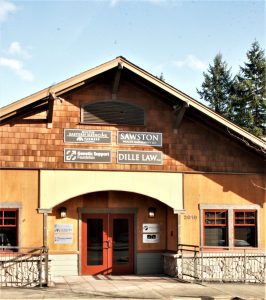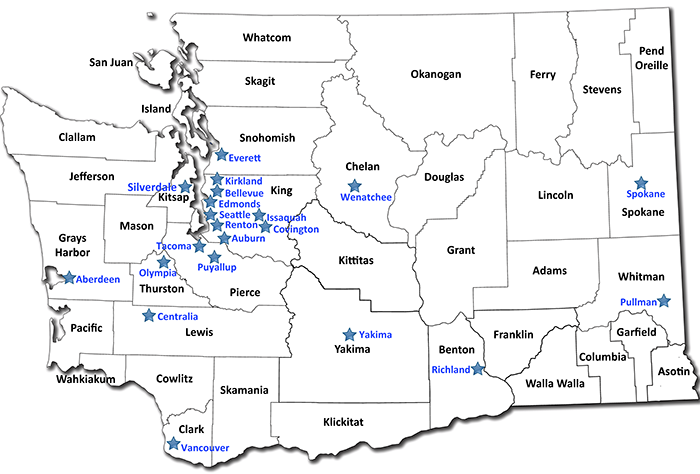Receiving a medical diagnosis with significant implications is overwhelming to say the least, but it is also the first step towards getting answers and help. The Genetic Support Foundation in Olympia is a resource that does what the name says. They support clients by helping them understand genetic connections in their family tree and how a specific diagnosis may also affect the health care choices of their loved ones. GSF has partnered with the Washington Department of Health to provide the Cascade Screening Connector service to facilitate communicating about the diagnosis, the disease and making treatment information accessible to extended family.

Education and information are key to helping people make informed health care decisions. Hereditary cancer is considered a public health concern, and people can better care for their well-being by knowing what their risks are. Washington was one of five states to receive a grant from the Centers for Disease Control and Prevention to provide the public with information and to assist the public in contacting relatives. The goal of the grant is to improve overall health in the state in regard to hereditary cancer. Being in the know is part of that path.
Using the Cascade Screening Connector is a proactive step in getting one’s diagnosis information out to those also possibly affected. “The Cascade Screening Connector can help you identify which of your family members are at risk for the same conditions,” the Washington Department of Health website explains. Upon diagnosis, the affected individual can go to the CSC website to either email or call the service. The service can then assist in connecting people to genetic counseling services to create a family tree and a contact list through genetic screening facilities across the state of Washington.
“We are so excited about this opportunity to work with the Department of Health on this new initiative, the Cascade Screening Connector,” says Katie Stoll, executive director and genetic counselor at GSF. “When an inherited risk factor such as a BRCA mutation is identified in the family, this information can be tremendously powerful for that person’s family members, by allowing a better understanding of their risks so that they can take the best steps towards prevention and earlier detection of cancer.”

Once the family members are identified, the clinic or the client can utilize premade form letters and tailor them to their needs. “We know there are so many barriers to sharing information about genetic risk in families,” explains Stoll. “For example, many people learn they carry a genetic mutation at the same time they are facing their own cancer diagnosis, a time that is already so overwhelming. We hope this Cascade Screening Connector service will ease the burden so this critical information can be more easily shared among family members with the goal of better health.” GSF provides sample letters to family informing them of their relative’s diagnosis of common autosomal dominant conditions like Lynch Syndrome or hereditary breast and ovarian cancers. The GSF website also provides letters that doctors can use to inform the family. Having assistance in creating a contact list and fashioning what to say, saying it right and getting all of one’s ducks in a row, is a great relief while coping with the news of the diagnosis itself.

Receiving clear, medically accurate disease information is important, and unknowing family is often very grateful to have been alerted to a possible health risk. Many have heard the common conversations of female cancers and possible connections through one’s mother or grandmother, but there’s further, crucial information to be understood. A common thought is to relate female cancers to female relatives and male cancers to male relatives. However, there are genes that may that present different cancer risks for men and women. Genes, propensities for diseases and risks of cancer can be passed down from both parents and are “hereditary,” according to the CDC, “meaning that they are caused by genetic changes (called mutations) which are passed down in families.” Each year, according to the CDC, 3% of breast cancers and 10% of ovarian cancers are from inherited BRCA1 and BRCA2 gene mutations. Lynch syndrome also encompasses common hereditary cancers such as colon, uterine, stomach and brain cancers to list a few. The most common of the Lynch syndrome’s non-polyposis cancer is colorectal, or colon, cancer. The gene mutations responsible come from parents and can present as seemingly unrelated cancers in a gender opposite to that of an affected family member.
GSF and the state health department’s partnership through the grant aim to connect all of the dots for patients and their families. For more information about genetic testing, visit the Genetic Support Foundation website, the GSF Cascade Screening Connector information page, call CSC at 360.524.6577 or visit the Washington Department of Health online.
Sponsored

















































